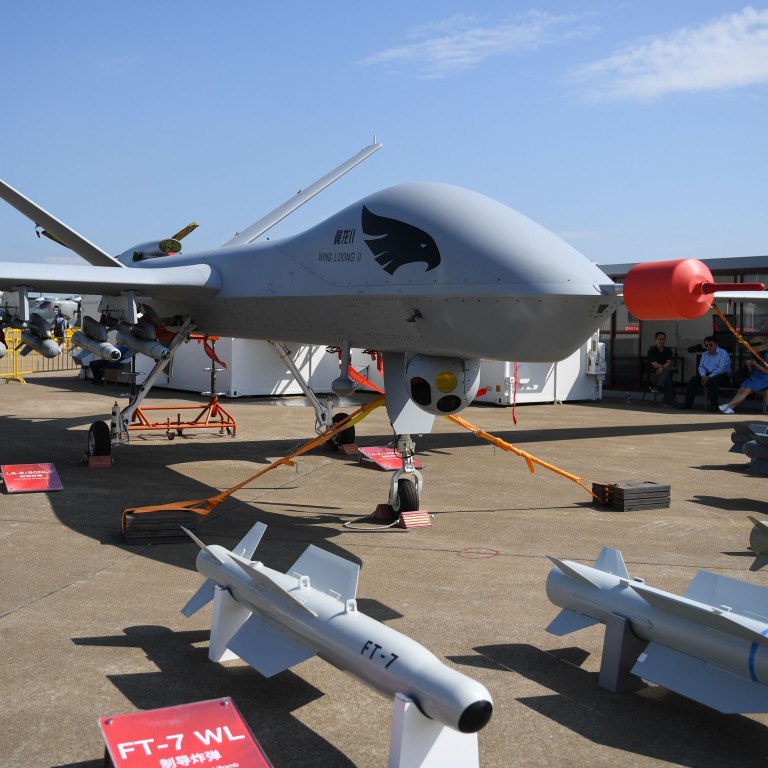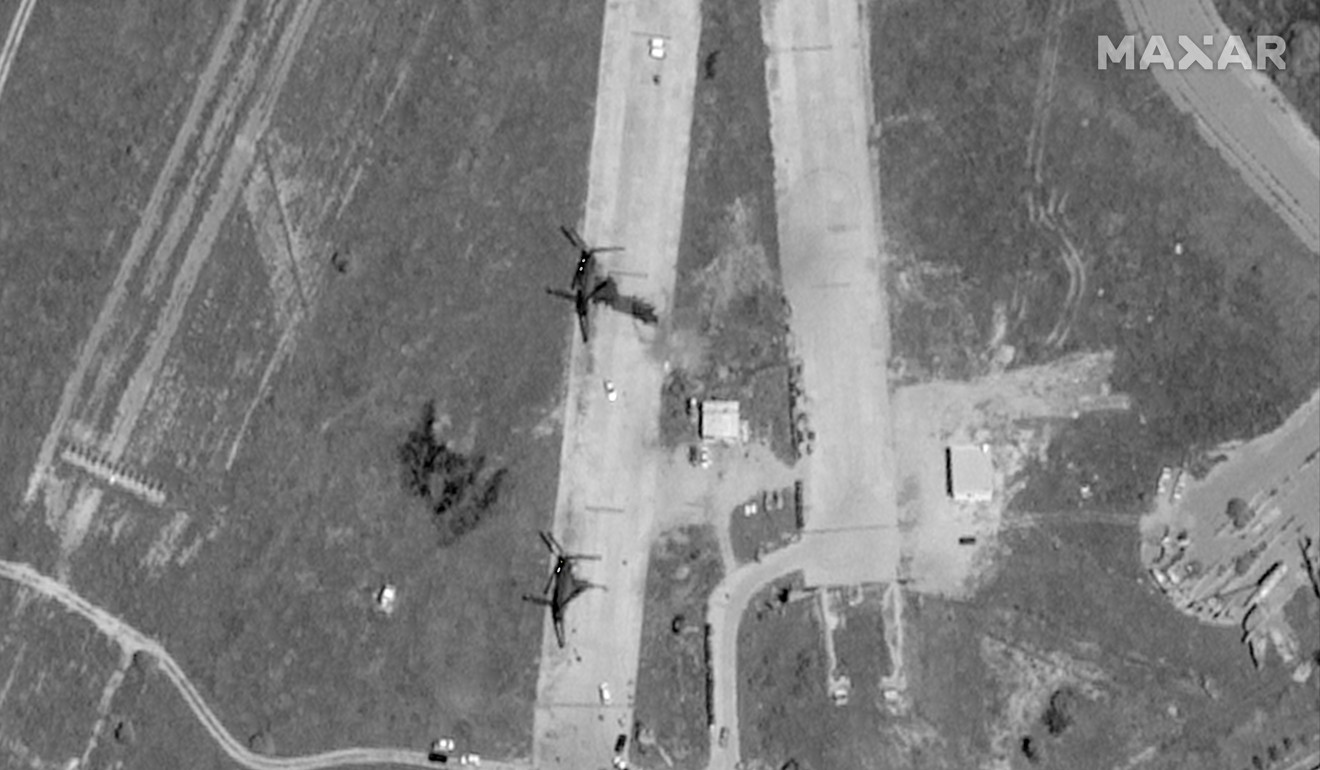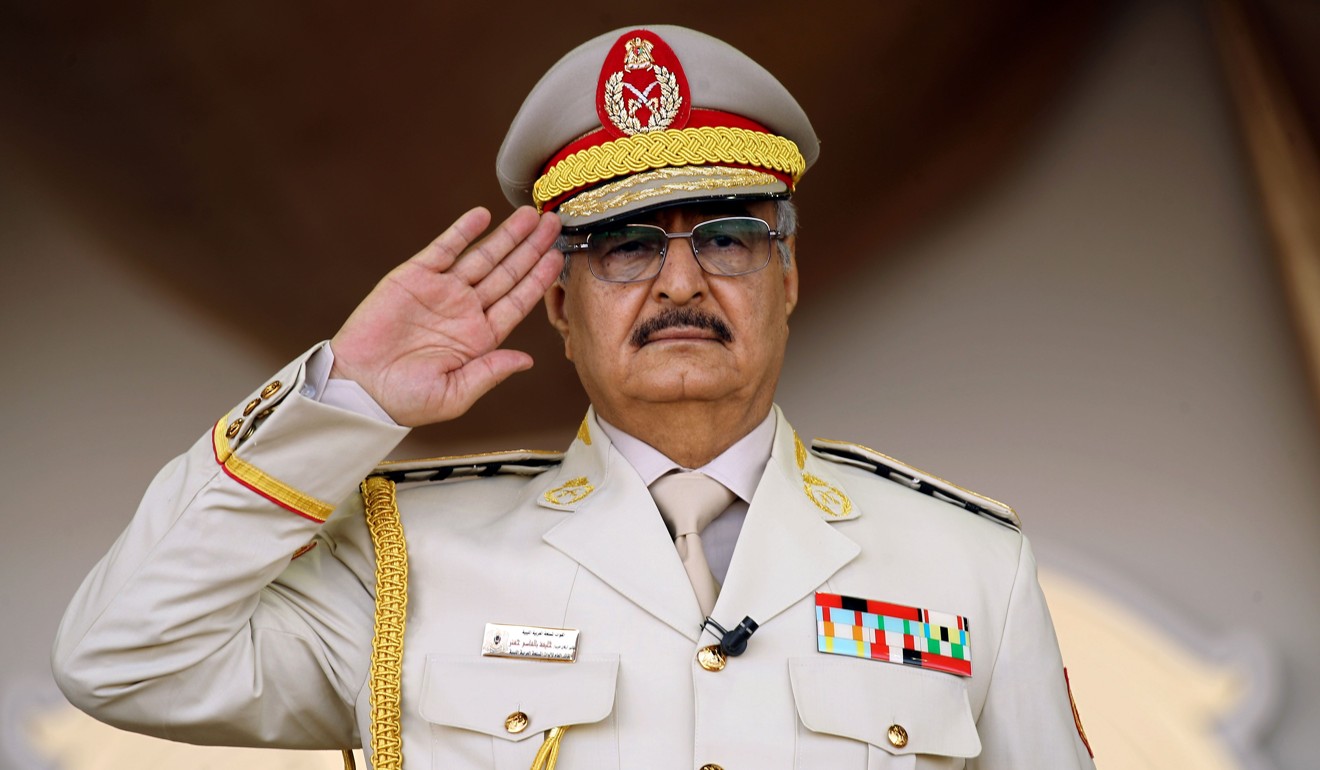
Chinese drones hunt Turkish drones in Libya air war
- Experts say that strongman Khalifa Hifter has procured Chinese-made Wing Loong drones from his main backer, the United Arab Emirates
In Libya, where rival forces are deadlocked south of Tripoli, a months-long battle for the skies between Turkish and UAE drones has failed to break the stalemate, analysts say.
Since April 4, when eastern strongman Khalifa Hifter launched an offensive to capture Tripoli – the capital and seat of the UN-recognised Government of National Accord (GNA) – front lines have moved little.
Faced with a stand-off, the two sides have turned to sophisticated weaponry in the hope of gaining an advantage in a battle that has killed over 1,000, injured close to 6,000 and forced 120,000 people from their homes, according to UN figures.
Drones entered the military arena in June, despite a UN arms embargo on Libya in place since the 2011 revolt that overthrew the regime of Muammar Gaddafi.
Chinese and US missiles, laser-guided shells and drones seized from opposition forces by Libyan fighters
“Given the intensive use of air assets in the first month of the offensive … most of the combat aircraft of the two air forces are grounded due to a lack of maintenance,” said defence analyst Arnaud Delalande.
“Not wanting to be left without air power, Haftar and the GNA seem to have turned urgently towards another type of craft: drones.”
At the end of July, UN envoy to Libya Ghassan Salame expressed concern about the widening “geographical scope of violence” with the increased use of air strikes.

Experts say that Haftar has procured Chinese-made Wing Loong drones from his main backer, the United Arab Emirates.
His rivals turned to Ankara, which is increasingly open about its support for the GNA, to equip themselves with Turkish Bayraktar drones.
Each side has since focused on trying to destroy their adversary’s drones and command centres.
Haftar’s forces have repeatedly carried out strikes on Mitiga airport, closing down Tripoli’s only remaining air link to the outside world, saying Turkish drones or their command centres were being targeted.
Chinese-made missiles and drones used in Libya conflict, UN experts find
“This air war has become a direct engagement between the main sponsors of the LNA (Haftar’s self-styled Libyan National Army) and the GNA” – Abu Dhabi and Ankara, respectively, Delalande said.
Retired Libyan general Ahmad al-Hasnaoui said that drones were providing support to ground forces and playing “an important role in weakening (enemy) forces and supply lines”.
Libyan analyst Jalal al-Fitouri said both sides have intensified air raids against enemy drone bases since the end of June.

“The UAE’s Wing Loongs have been looking for the runways of the Bayraktar drones to destroy the GNA’s air power, but they haven’t succeeded,” Delalande said.
“The Turks have diversified their strategy by using roads to launch their drones and by spreading relay antennas over the entire area between Tripoli, Misrata and (the central district of) Jufra to extend the range of their drones,” he added.
But irrespective of whether Wing Loong or Bayraktar drones win the air war, “the drones are not an end in themselves” if ground forces don’t advance, Delalande said.
War by remote control: Israel’s enemies Iran and Hezbollah challenge its drone superiority
Faced with static front lines on the ground, the UN is encouraging the warring parties to relaunch a political process on hold since Haftar launched his offensive.
But Delalande believes “Haftar does not intend to negotiate” and thinks the air war can be won.
“He is pushing the United Arab Emirates to engage further. Air strikes from Mirages (jets belonging to the UAE air force) are not to be ruled out in the coming weeks,” Delalande warned.
Ankara, for its part, “no longer hides its support for Tripoli, without directly engaging its own air power,” he said.

.png?itok=arIb17P0)